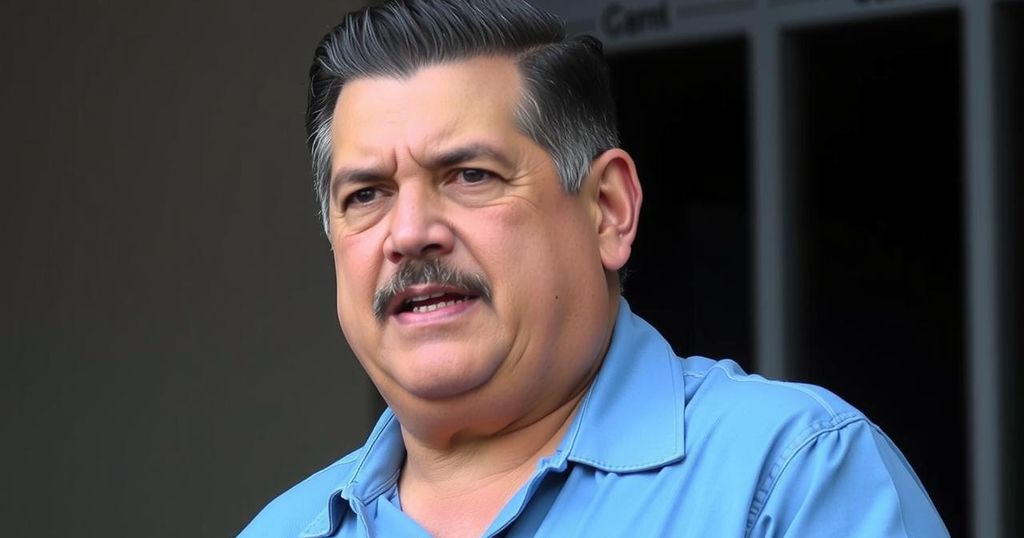Colombia Proposes Control of Argentine Embassy Amid Venezuelan Political Tensions

Colombia has offered to manage the Argentine Embassy in Caracas, sheltering aides of opposition leader María Corina Machado, while negotiating their safe passage with the Venezuelan government. Venezuela might cooperate if certain individuals are released by Argentina and Ecuador. This marks an increased diplomatic engagement by Colombia in the Venezuelan political crisis after recent tensions.
Colombia has proposed to take control of Argentina’s Embassy located in Caracas, which has been serving as a refuge for six aides of opposition leader María Corina Machado since March. According to Foreign Affairs Minister Luis Gilberto Murillo, this offer is part of ongoing negotiations with the Venezuelan government aimed at facilitating the safe passage of these opposition officials. Venezuela reportedly expressed a willingness to cooperate, provided Colombia can persuade Argentina to release an unnamed individual connected to the Venezuelan administration and facilitate the release of former Ecuadorian Vice-President Jorge Glas, who was controversially detained during a raid on the Mexican Embassy in Quito.
The backdrop of this diplomatic initiative includes escalating tensions between Venezuelan authorities and opposition figures, exacerbated by the recent re-election of President Nicolás Maduro, whose legitimacy is highly contested. Following the election, Argentina severed diplomatic ties with Venezuela and transferred the management of its embassy to Brazil. The six opposition aides, who are accused of terrorism by the Maduro government due to their affiliation with Machado and her stand-in candidate, have endured increasing intimidation from Venezuelan police forces. There are reports of police coercion leading to power cuts and restricted access to basic necessities at the Embassy, which the United Nations Human Rights Council identified as violations of international law.
As tensions mount, with both Maduro and González—who has taken refuge in Spain—expressing intentions to be sworn in on January 10, Colombia’s intervention signals significant regional involvement in the Venezuelan political crisis. Murillo’s recent diplomatic travels to Brazil and Ecuador were undertaken under President Gustavo Petro’s directives to negotiate a viable solution. Brazil’s Foreign Affairs Ministry has indicated that it will maintain control of the Embassy until Argentina appoints a successor. The situation serves as a stark reminder of the human rights issues prevalent under Maduro’s regime, as highlighted by Argentina’s diplomatic remarks.
The political landscape in Venezuela remains tumultuous following President Nicolás Maduro’s contentious re-election amidst widespread claims of voter manipulation. Opposition leaders, including María Corina Machado, have sought refuge in foreign embassies to escape political persecution. This has drawn the attention of neighboring countries, particularly Colombia, which is increasingly assertive in mediating political tensions and facilitating dialogues between Venezuela and its neighboring nations. The situation is compounded by recent diplomatic strains, particularly with Brazil, although talks are slowly reopening.
In summary, Colombia is stepping forward to assume control of the Argentine Embassy in Caracas as a means to assist opposition figures facing political repression from the Maduro government. This diplomatic maneuver underscores the complexities of regional politics, reflecting how neighboring countries are attempting to navigate the fallout of Venezuela’s ongoing political crises and the associated human rights violations. With Columbia’s involvement, there remains a glimmer of hope for the safe passage of such individuals, contingent upon negotiations with both Argentina and Ecuador.
Original Source: www.batimes.com.ar







